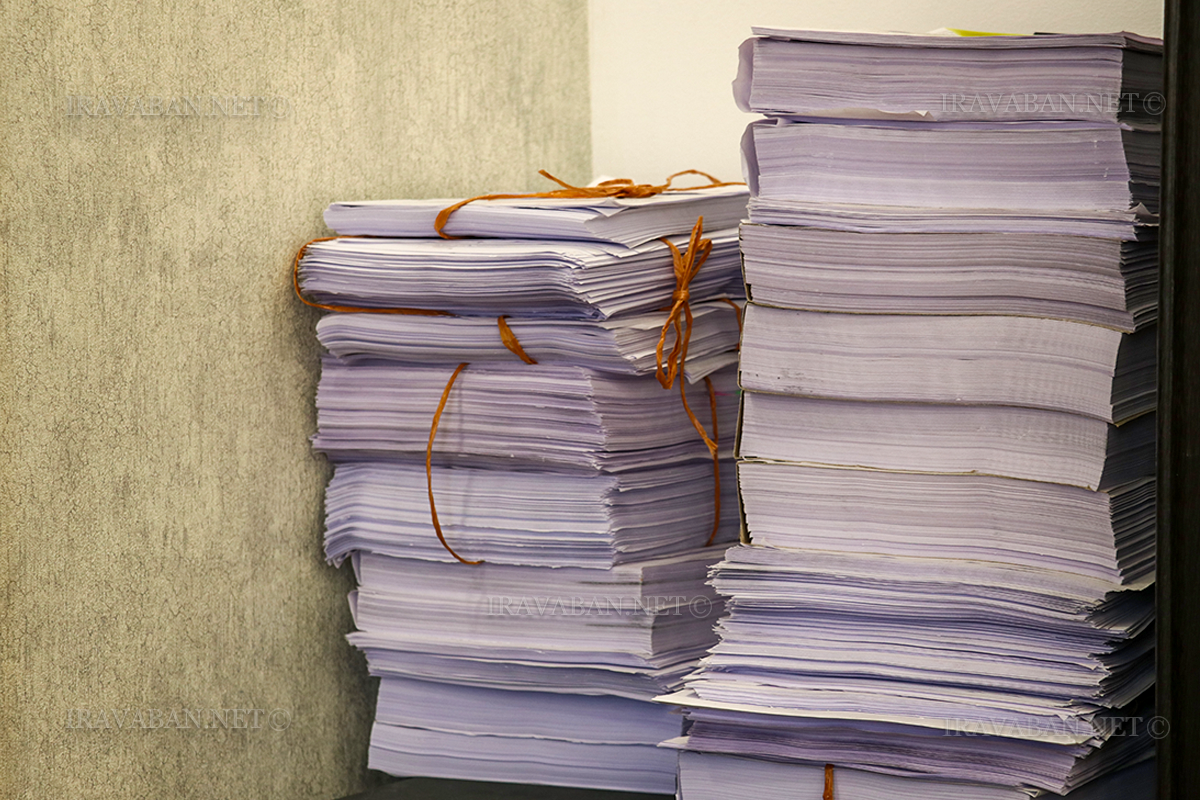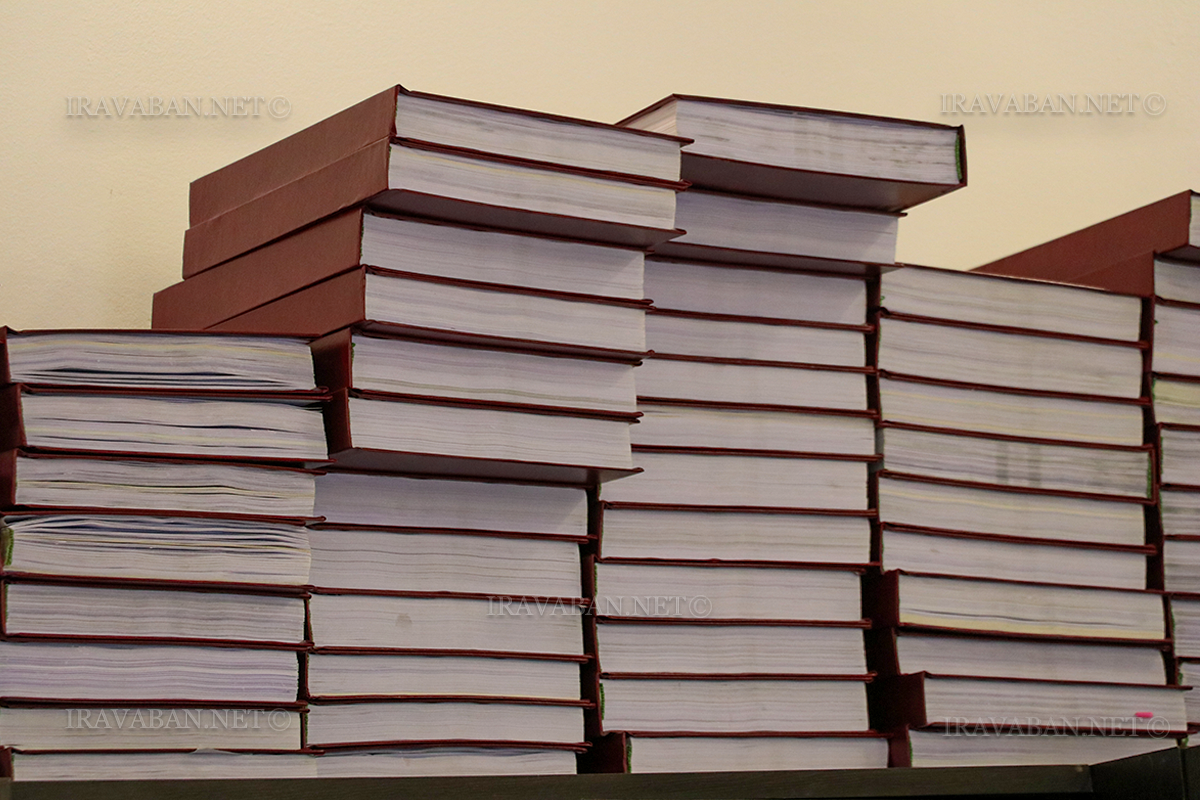As part of Iravaban.net‘s “Judges of Armenia” interview series, we spoke with Meri Mosinyan, a judge of the Yerevan Anti-Corruption Court. The judge shared about her career choice, various aspects characteristic of a judge’s work, problems within the system, and other field-related issues.
-Can you tell us about your choice of profession? How was this decision made?
-The choice of profession was probably made in secondary school when we were studying social science. We were introduced to concepts of law, justice, the Constitution, and other legal categories. During this time, a desire arose to study these topics more deeply and to understand them better. I expressed my wish to choose the legal profession to my parents, and they supported my idea.
There were no lawyers in our family; my parents have professions in natural sciences.
-You graduated with honors from both the bachelor’s and master’s programs at the YSU Faculty of Law, then continued your studies in Hamburg. What was the education like there? What systemic differences were there compared to Armenia?
-During my years of study in Hamburg, I realized that the Faculty of Law at Yerevan State University provides quite high-quality legal education for students. The YSU Faculty of Law has always been a leader, and when you compare it with other educational systems, these advantages become even more pronounced. Of course, there were also some differences, considering that the German educational system emphasizes independent research work by students and gives freedom to act independently. Additionally, students there have a wider choice in terms of resources, considering the available literature and law faculty libraries. There’s also an emphasis on critical thinking.
-You worked as a judge’s assistant, then also in the National Assembly. Was it easy to start working as a judge?
-Every person who transitions from any position to work as a judge in the judicial system encounters certain difficulties, which may be more technical in nature – related to work organization – rather than requiring specific professional knowledge. You might be a well-prepared specialist with sufficient knowledge and experience, but a judge’s work involves certain specificities related to staff work organization and other technical issues. My experience working in court gave me a great advantage in this regard, considering that I had worked as a judge’s assistant in the Criminal Court of Appeal and had an insider’s understanding of the peculiarities of this work. There were some difficulties in the initial period; in the first week, I received about 40 criminal cases. Accepting criminal cases into proceedings and organizing the corresponding procedures within one week contains certain difficulties. But considering my previous experience, it was possible to overcome these difficulties.
-What pressures do judges investigating corruption crimes face?
-I can answer for myself: I don’t face any pressure. It’s a different question how this or that phenomenon can be perceived by society, and considering that in certain cases, during the examination of certain cases, such comments can be made both by persons interested in the case and as a result of journalists’ commentary. They can cover a case in such a way that those segments of society who are not so informed about the field of criminal justice, also for objective reasons because it’s not their field, may get the impression that the judge might be under some kind of pressure. But I think this is just a result of illuminating the given proceedings and the given case from a certain position. In this regard, I believe that professional journalistic work is necessary to avoid misunderstanding by the public.
-How do you feel about negative opinions and discussions related to your work? Even if relatives or friends say that some issue about you has been discussed, and so on?
-When I decided to choose the profession of a judge, and especially in the Anti-Corruption Court, I was aware that I wasn’t coming to an easy place, and that sometimes I would make decisions, verdicts that certain people wouldn’t like – both participants in the proceedings and some representatives of society. However, I was aware of where I was coming and what reactions and consequences my decisions could cause. I started working as a judge with the awareness that I bear responsibility for the legal system, public trust, and justice, not for popular, widespread public opinion.
-What problems do you see in the judicial system, and what would you like to change?
-I won’t be saying anything new if I mention that, in my assessment, the main problem is the workload of judges. I don’t remember a single day when I could leave work at 6:00 PM as a result of organizing my work. At best, it’s 8:00 PM, 9:00 PM. We usually have to work on Saturdays and Sundays. Judges perform quite heavy work in the long term, which can have negative health and physical consequences for judges. The workload is due to both criminal cases and motions examined by judges within the framework of judicial guarantees over pre-trial proceedings. For example, when I come to work at 9:00 AM and there’s a detention motion or other motions, I return home the next day in the morning. As for solutions, I think the judges’ burden will be somewhat relieved if we change the requirements for composing judicial acts that we have in legislation. When I have discussions with, for example, my judge friend living in Germany and show our decisions, they’re simply amazed at the volumes we’re forced to write. At best, they compose verdicts of 1 or 2 pages, in case of certain volumes – up to 5 pages. Recently, I had a motion to apply detention as a preventive measure, and that judicial act consisted of 120 pages. Therefore, we spend a very long time on composing judicial acts, and I think if the logic changes, the volume of work and our time spent in the workplace will be reduced.
-Have you ever regretted choosing the profession of a judge?
-No, never. This is the job where I can best demonstrate my professional knowledge. The only motivation that makes people serve in office is love for the job; otherwise, considering the workload, the time we take away from family and devote to work, there can be no other motivation.
-And in practice, have there been cases when the law provided for something else, but you felt sorry and wanted to act differently as a human?
-Our legislation is quite human-centered, and, in general, I can’t imagine a situation where a judge would want to make one decision from a human perspective, but the legislation wouldn’t allow it. The general logic of RA legislation is that the judge is obliged to take into account all circumstances characterizing the person. In all cases, the judge will not be forced to make a decision that stems from their conscience but contradicts the legislation.
-During your tenure, have there been cases when they tried to guide or pressure you regarding cases of public interest?
-I can say that I have never received any call on any case.
-As a young judge, how do you feel about lowering the age threshold for judges? A number of lawyers and advocates have a negative opinion about this.
-I think young judges bring new, fresh ideas to the system when they come. Young judges sometimes understand the problems of modern society better, are more willing to accept new legal interpretations in the course of modern technological development. I think, of course, experience is important, but age is not primary, rather professionalism, professional preparedness, ethical standards that the judge possesses, and commitment to developing the judicial system.
-There have been cases when persons included in the pre-election list of the “Civil Contract” party have become judges. Do you see an impartiality issue here?
-I think the fact of being a former member of the “Civil Contract” or any other party cannot raise an issue related to impartiality. For example, in countries with developed legal systems, I regularly give the example of Germany, considering that I at least have knowledge of the experience there. In that country, judges can be members of any political party during their tenure. The condition is that it should not in any way affect the impartiality of the judge’s work. Moreover, in the case you mentioned, that the person was previously a member of any party, I think it doesn’t create any problem. One should study the behavior of the given person before becoming a judge and during their work as a judge.
Interview by Mariam Antonyan
Photos by Lusine Hakobyan


























